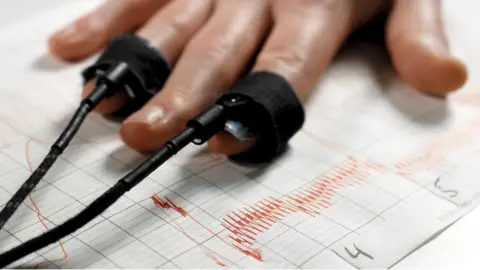Polígrafo tests, usually known as falsehood locator tests, have found a spot in criminal investigations around the world, remembering for Spain. These tests measure physiological reactions—for example, pulse, circulatory strain, breath, and skin conductivity—to decide if an individual is being honest.
How Polygraphs Function
Lie tests depend on the reason that tricky responses produce distinguishable physiological changes. During a test, sensors are joined to the subject’s body to screen their reactions as they answer a progression of inquiries. The inspector then, at that point, examines these physiological changes to evaluate the probability of misdirection. Despite the fact that polygraphs are not secure, they give valuable information that can assist with directing insightful endeavors.
Applications in Spanish Investigations
In Spain, polygraph tests are utilized in different settings inside criminal investigations. They are utilized to assist with explaining suspect explanations and confirm plausible excuses. For instance, on the off chance that a suspect keeps up with their blamelessness, they could intentionally consent to a polygraph test to approve their case. On the other hand, disparities in the physiological reactions recorded during the test might show the requirement for additional examination.

Limitations and Challenges
In spite of their possible advantages, these tests face restrictions in Spain. The exactness and unwavering quality of polygraphs have been addressed, as physiological reactions can be impacted by different variables inconsequential to duplicity, like uneasiness or ailments. This fluctuation can make polygraph results questionable in specific circumstances.
Besides, the tolerability that polygraph brings about Spanish courts is a subject of discussion. While polygraphs can be an important device for examiners, their outcomes are for the most part not permissible as proof in that frame of mind to worry about their logical legitimacy. This limit truly intends that while this can help investigations, they can’t convincingly decide culpability or guiltlessness.
Ethical and Legal Considerations
The utilization of these tests additionally raises moral worries. There are banter about the likely mental effect on suspects and whether people ought to be constrained to go through testing. Guaranteeing that the tests are managed morally and with deference for the freedoms of people is urgent in keeping up with the respectability of the analytical cycle.
Polígrafo tests assume a prominent part in Spanish criminal investigations by offering a strategy to evaluate the believability of suspects and confirm vindications. While their limits and lawful status present difficulties, they remain a helpful device for improving insightful proficiency. As methods and advances advance, the role of polygraphs in Spain might keep on growing, possibly working on their viability and acknowledgment in the analytical and lawful fields.





More Stories
Cost efficient security approaches maximizing coverage while minimizing ongoing monitoring expenses
Personalized Care Solutions Powered By Adaptive Software Patient Centered Analytics
Step-by-Step Process of Working with a Backlink Provider